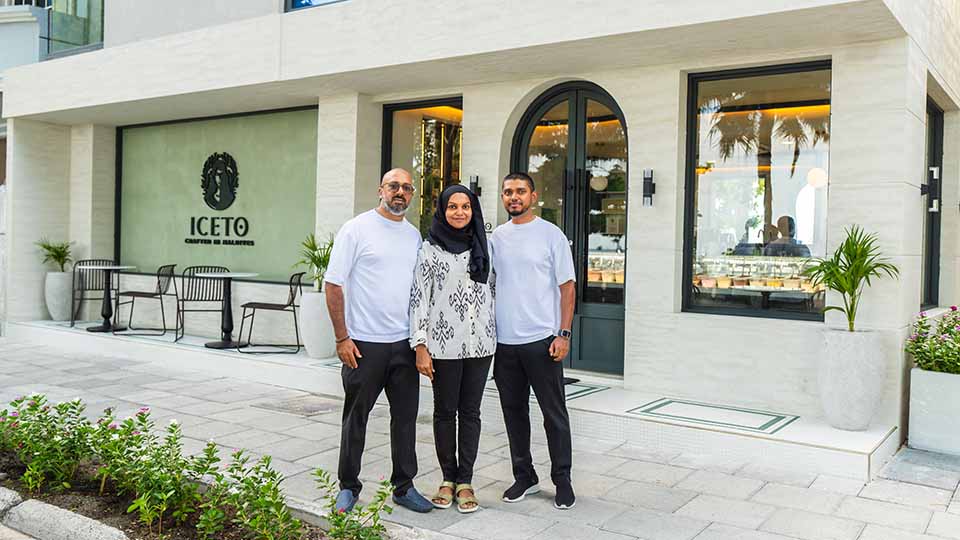Background

Jordanian pharmaceutical industry
Ever since its inception, the Jordanian pharmaceutical industry has steadily grown into the country’s highest value-added export industry. By 2010, sixteen pharmaceutical companies were exporting 81% of their production per year to over sixty countries, with high quality products and affordable pricing driving demand. In 2008, sales of the top ten pharmaceutical companies exceeded US$ 500 million. For much of its history, Jordan’s pharmaceutical industry has focused on producing affordable generic drugs. Jordan’s accession to the World Trade Organization (WTO) in 2000 and a free trade agreement with the United States in 2001 strengthened its intellectual property (IP) system, and the Jordanian pharmaceutical industry has been evolving as a result. Leading this evolution is Al Hikma Pharmaceuticals (Hikma), the largest pharmaceutical company in Jordan.
Founded in the capital of Amman in 1978 by Mr. Samih Darwazah, Hikma’s initial focus was to develop a branded pharmaceuticals business across the Middle East and North Africa region (MENA), which it did by manufacturing patented pharmaceutical products under license. In 1991, the company’s success led it to establish a presence in the United States through the acquisition of West-Ward Pharmaceuticals (West-Ward). In only three years Hikma became compliant with United States Federal Drug Administration (USFDA) regulations, and in 1996 it became the first Arab company to receive USFDA approval. Shortly after its early successes in the United States, Hikma established an innovative injectable pharmaceutical manufacturing venture in Portugal targeting the MENA and Portugal markets. By the late 1990s, Hikma’s organic innovation and presence in Europe, MENA and North America led to significant expansion of the company.
Licensing and Partnerships
Hikma’s early success came through the manufacturing and marketing of branded generic drugs. While this continues to be an important part of the company’s overall strategy, Jordan’s comprehensive economic reforms, its accession to the Trade-Related Aspects of Intellectual Property Rights (TRIPS) agreement and the country’s increased level of IP protection brought many new opportunities for Hikma. The greatest of these was the increased confidence of international partners, which brought even more licensing and partnership opportunities. Prior to Jordan’s IP reforms, companies in the country would use slightly different formulas to manufacture a patented product for the generic market. While this was not considered to be IP infringement, it proved difficult to attract foreign investment in the industry. Under the new IP laws, Jordanian companies seeking to make generic versions of patented products cannot use different formulas or ingredients; they must use the exact, patented formula. To do so would require licensing and partnership agreements with the patent holder, and this change brought an opportunity that Hikma was quick to seize upon.
Obtaining products under license has always been a part of Hikma’s strategy, and the new IP laws helped the company capitalize on the increased appeal of the country’s pharmaceutical industry generated for foreign investors. The company’s strong market position and established infrastructure made it a clear partner for multinational pharmaceutical companies seeking access to fast growing MENA markets. By the time IP laws in Jordan changed, Hikma already had a proven track record of working with global licensing partners, and its USFDA approved facilities combined with its highly skilled workforce and existing production capabilities made the company even more attractive to multinational partners. In 2007, the company’s successful utilization of new domestic IP laws through increased licensing agreements and partnerships yielded profits of US$ 198 million. As of 2010, it manufactured and marketed 40 licensed branded products through partnerships with multinational corporations such as LG Life Sciences of the Republic of Korea, Sinclair of the United Kingdom and MonoSolRx of the United States.
Licensing deals and partnerships have also given Hikma unique acquisition opportunities, which in turn have brought the company access to new markets. In 2007, Hikma acquired Arab Pharmaceutical Manufacturing (APM), which was the third largest pharmaceutical company in Jordan, through which it significantly increased its presence in Saudi Arabia, as APM gets over one third of its revenue from Saudi Arabia. That same year, it entered the Egyptian market through the acquisition of Alkan Pharma, which became Hikma Egypt, and also entered Germany through acquiring two well known pharmaceutical companies in the injectable oncology market: Ribosepharm and Thymoorgan. These acquisitions, along with new licensing agreements, allowed the company to launch 28 new products, receive 167 approvals and submit 74 regulatory filings in Europe, Jordan and the United States in 2007.

business segments
Commercialization
Hikma commercializes its products under three major segments: branded, injectable and generic pharmaceuticals. The branded segment manufactures branded generic pharmaceutical products for sale across the MENA region and Europe. The company has been involved in branded pharmaceuticals since its start, and as such enjoys a very good reputation in this area. The company’s injectable segment manufactures injectable generic pharmaceutical products in powder, liquid and lyophilized forms for sale in MENA, Europe and the United States. Lastly, the generic segment produces non-branded generic pharmaceutical products. This segment is focused primarily on the United States, as it is the largest market for the company’s non-branded generic products. The company’s business in this segment is operated by West-Ward, and as of late 2010 it sold 49 generic compounds in 108 dosage forms and strengths.
The company has twelve world class manufacturing facilities which provide it with the flexibility to select the most appropriate manufacturing strategy for a particular product, taking into account factors such as cost, regulatory requirements and capacity. Manufacturing facilities are located in Jordan and Saudi Arabia, five of which have been approved by the USFDA, which provides the company with the capability to produce products for the United States market at a lower cost. Maintaining a local manufacturing presence in the MENA region is essential for the company’s growth, as some markets restrict the range of products that can be imported from outside the region.
Research and Development
Sparked by Jordan’s new IP framework, Hikma has secured the resources it needs to continue and expand its research and development (R&D) activities through licensing agreements, partnerships and acquisitions. The company’s R&D team is spread throughout Europe, Jordan and the United States, and focuses on developing technically challenging products such as injectables, complex formulations, unstable compounds and sustained release tablets and capsules. The R&D team aims to continually increase the number of approvals that it receives from regulatory authorities in its markets for newly developed products which have a strong market potential.
Hikma’s R&D division is in charge of product formulation, process design and monitoring of bio-equivalency testing for all of its business segments. Beyond developing new products, it also improves existing products and manufacturing techniques, as well as performing R&D activities related to the manufacture of chemical synthesis, fermentation and purification. To accelerate its R&D efforts, Hikma aims to invest up to six percent of its total annual revenue in R&D, and also cooperates with leading R&D organizations through its collaborative partnerships. All of these factors have allowed Hikma to transform into a company that not only produces generics, but into a company that innovates new products, making a substantial impact to the growth of the company and the Jordanian pharmaceutical industry. At the end of 2009, Hikma’s R&D department contributed to a total of 116 compounds and 190 dosage forms and strengths pending regulatory approval, giving the company a significant pipeline of innovative new products.
Patents and Trademarks

in Europe (OHIM trademark
No.005727425)
In 2007, Hikma filed its first Patent Cooperation Treaty (PCT) international patent application for a nanoparticle pharmaceutical carrier invention made in collaboration with the Queen’s University of Belfast. By 2010, the company has also filed three patent applications with the European Patent Office (EPO).
Because branded products are an important part of Hikma’s business, the company has protected several of its brand names through registering trademarks. The company has utilized the international Madrid system to register a trademark for its Cefofix antibiotic in 1992, which was granted in 1995. It has also registered its name and slogan, “Hikma Quality,” with the Trademarks and Designs Registration Office of the European Union (OHIM).
Business Results
As the IP landscape in Jordan has changed, so has Hikma’s approach to its future growth and success. Foreign investment, licensing, partnerships and acquisitions have all contributed to Hikma’s rapid growth. The company’s success was recognized internationally in 2005 when it was listed on the London Stock Exchange. In 2007, it had an increase in revenue of 41.6% from the previous year. By 2009, Hikma was the fifth largest pharmaceutical company in the MENA region, enjoying a 3.7% market share, 12.4% annual growth rate and over US$ 400 million in sales. For the six months ended June 30, 2010, revenue was up 11.3% and operating profit was up by 20.2% on the previous year. The company is one of the top twenty generic prescription providers in the United States, has a geographic footprint spanning 49 countries, and is the licensing partner of choice for multinational companies looking to expand into the MENA region.
An Effective IP System for Economic Growth
Jordan’s strengthened IP system has helped put the Jordanian pharmaceutical industry on the path of innovation. While many Jordanian companies were previously focusing on manufacturing generic drugs, Hikma is an example of a company that is now creating its own patentable drugs and innovations. Inspired by Hikma’s success, Jordanian pharmaceutical companies have expanded their distribution networks to over sixty countries worldwide. Jordan has evolved into a leading knowledge economy in the region, and the pharmaceutical industry is just one example how IP can lead the growth of an entire economy.



